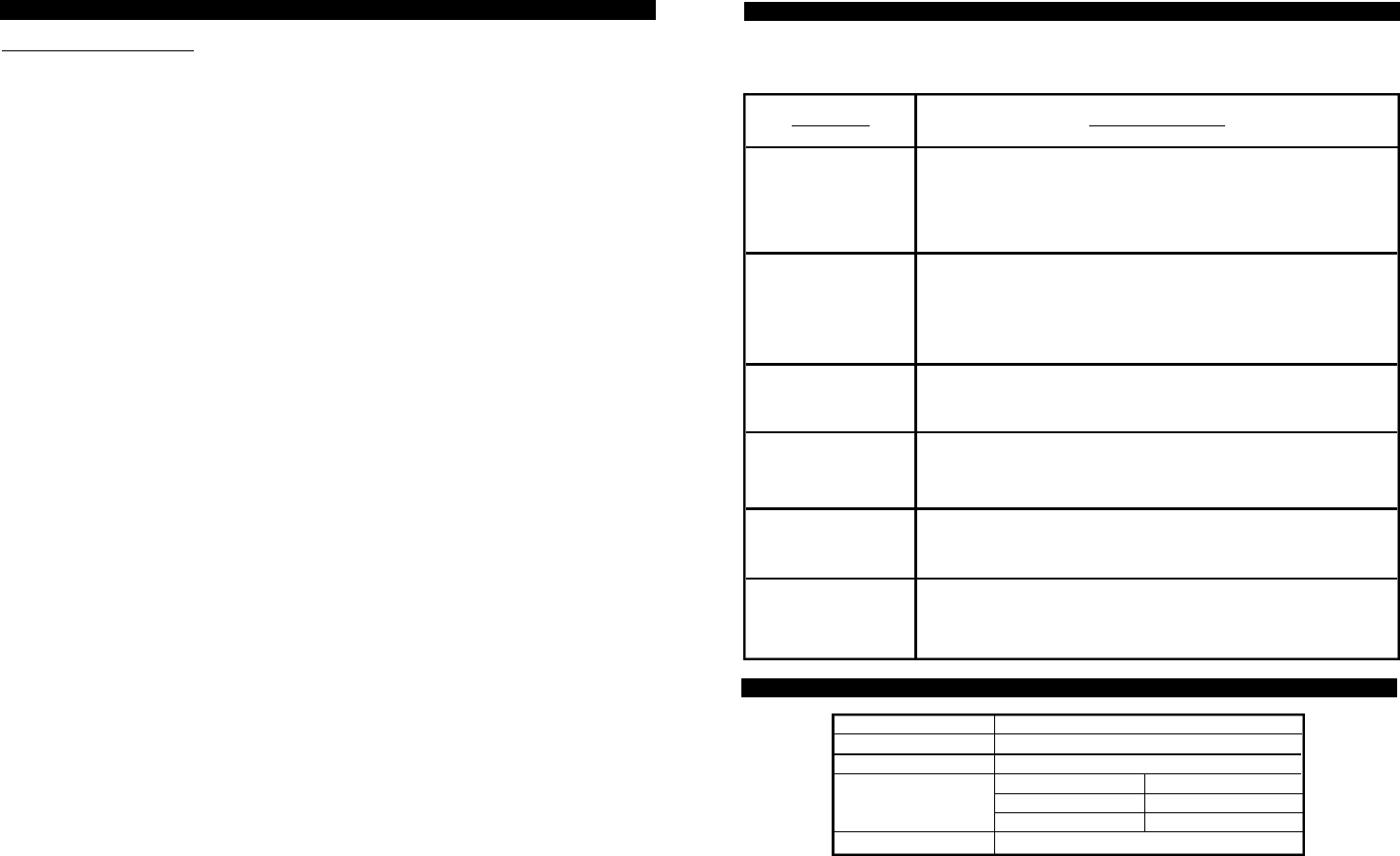
2 23
SAFETY INSTRUCTIONS
Save these instructions
1. Please read this instruction manual carefully
before operating.
2. Refer to the Grounding Instructions in the
Installation manual for the proper grounding of
the washer.
3. Do not wash articles that have been previously
cleaned in, washed in, soaked in or spotted
with gasoline, dry-cleaning solvents, other
flammable or explosive substances as they
give off vapors that could ignite or explode.
4. Do not allow children to play on or in the
washer. Close supervision of children is
necessary when the washer is used near
children.
5. Do not reach into the washer if the inner tub or
agitator is revolving.
6. Do not install or store the washer where it will
be exposed to water and/or weather.
7. Do not tamper with the controls.
8. Do not repair or replace any part of the washer,
or attempt any servicing unless specifically
recommended in the user maintenance
instructions trouble shooting guide that you
understand and have the skills to carry out.
9. Do not add gasoline, dry-cleaning solvents, or
other flammable or explosive substances to the
wash water. These substances give off vapors
that could ignite or explode.
10. Under certain conditions, hydrogen gas may be
produced in a hot water system that has not
been used for two weeks or more.
HYDROGEN GAS IS EXPLOSIVE. If the hot
water system has not been used for such a
period, before using this washer, turn on all hot
water faucets and let the water flow from each
for several minutes. This will release any
accumulated hydrogen gas. THE GAS IS
FLAMMABLE, DO NOTSMOKE OR USE AN
OPEN FLAME DURING THIS TIME.
11. Replace worn power cords and/or loose plugs.
12. To reduce the risk of an electric shock or fire,
DONOTuse an extension cord or an adapter
to connect the washer to the electrical power
source.
13. Use your washer only for its intended purpose,
washing clothes.
14. ALWAYS disconnect the washer from electrical
supply before attempting any service.
Disconnect the power cord by grasping the
plug, not the cord.
15. Install the washer according to the
INSTALLATIONINSTRUCTIONS. All
connections for water, drain electrical power
and grounding must comply with local codes
and be made by licensed personnel when
required. Do not do it yourself unless you know
how!
16. To reduce the risk of fire, clothes which have
traces of any flammable substances such as
vegetable oil, cooking oil, machine oil,
flammable chemicals, thinner etc. or anything
containing wax or chemicals such as in mops
and cleaning cloths, must not be put into the
washer. These flammable substance may
cause the fabric to catch on fire by itself.
17. Do not use fabric softeners or products to
eliminate static unless recommended by the
manufacturer of the fabric softener or product.
18. Keep your washer in good condition. Bumping
or dropping the washer can damage safety
features. If this occurs, have your washer
checked by a qualified serviceman.
19. Be sure water connections have a shut-off
valve and fill hose connections are tight.
CLOSE the shut-off valves at the end of each
wash day.
20. The LID MUST BE CLOSED any time the
washer is to spin. DO NOTby-pass the safety
switch by permitting the washer to spin with the
lid open. A brake will stop the inner tub within
seconds if the lid is opened during spinning. If
the inner tub does not stop when the lid is
opened, remove the washer from use and call
a serviceman.
EN CAS DE PROBLÈME
Si vous croyez que l’appareil est en panne, prière de vérifier les solutions suivantes avant d’appeler un
technicien de service. Il se peut que le problème soit facile à rectifier. Vous n’ávez qu’à consulter le tableau
suivant.
Endroit à vérifier
• Il y a t-il une panne d’électricité?
• Le cordon d’alimentation est-il branché dans une prise de courant?
• Le disjoncteur est-il coupé? La fusible est-elle fondue?
•Avez-vous réglé la commande “WASH-TIMER” ou “SPIN-TIMER” pour
mettre l’appareil en marche?
• Le boyau de drainage est-il bouché par le charpie?
• Le boyau de drainage est-il plié?
• Une partie du boyau est-elle plus haute que 90 cm? (35 po.)
• Est-ce que le fil de rallonge mesure plus de 3 m? (9 pieds)
• Un boyau trop éntroit est-il utilisé?
• Un objet touche t-il l’agitateur durant la rotation?
• Le boyau d’arrive est-il installé? Le robinet est-il ouvert?
• L’arrivée d’eau a-t-elle été coupée dû à un manque d’eau dans
le votre region?
• Il y a t-il un engorgement dans le boyau?
• Est-ce que le couvercle de l’essoreuse est ouvert?
• Se trouve-t-il des vêtements entre les deux cuves?
• La laveuse est-elle de niveau?
• Les vêtements sont-ils mals équilibrés?
(Redistributer les vêtements)
Problème
La laveuse ne fonctionne
pas de tout
La laveuse ne se vide
pas à fond
L’appareil émet un bruit
anormal pendant le
lavage
Pas d’eau
L’appareil n’essore pas
Un bruit de cuve contre
cuve est entendu
SPÉCIFICATIONS
Dimensions
Poids de l’appareil
Puissance
Niveau d’eau
Énergie Consommée
735mm X 440mm X 870mm (L X P X H)
32 kg
120V / 60 Hz
Haut 50L
Moyen 43 L
Bas 36L
480W
















